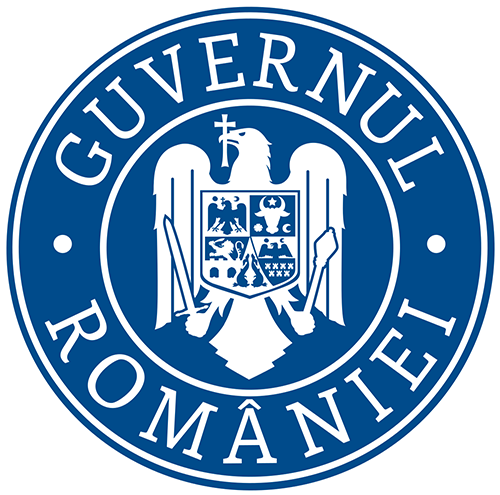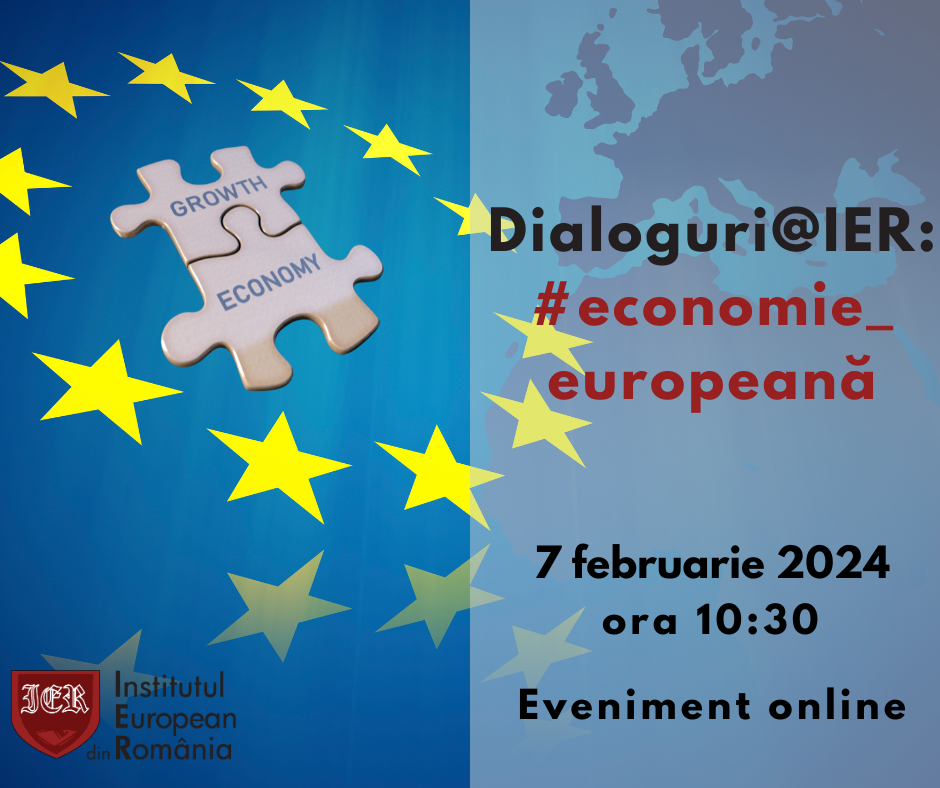On Wednesday, February 7, 2024, from 10:30 to 12:00 a.m., the European Institute of Romania (EIR) organised in the framework of Dialoguri@IER – Dialogues@EIR series, an online event on Zoom on the topic “Building a resilient European economy by 2040. Romania’s integration into European value chains”.
The event was opened by Oana-Mihaela Mocanu, director general of EIR, and it included a presentation of the topic by Daniela Staicu, associate assistant at the Faculty of Business Administration in Foreign Languages (FABIZ), the Bucharest University of Economic Studies, coordinator of the 2023 SPOS study titled “Building a resilient European economy by 2040. Romania’s integration into European value chains”, and Eugenia Gușilov, director and founder of Romania Energy Center (ROEC), co-author of the aforementioned SPOS study. The presentation was followed by insightful comments made by Simona Moagăr-Poladian, director at the Institute of World Economy, the Romanian Academy, member in EIR’s Administrative Board, and Professor dr. Constantin Ciupagea, former Head of Land Resources and Supply Chain Assessments Unit at JRC, European Commission.
The event, moderated by Mihaela-Adriana Pădureanu, expert in the Studies Unit (EIR), aimed at disseminating the results of the research conducted for the SPOS study. The latter presented and analysed the general state of the European economy, starting from the impact of the pandemic crisis and the Russian aggression in Ukraine, in the context of the changing balance of power in the world economy, as a result of the societal meta-transformations.
During the event, the following aspects were highlighted:
- The economic resilience is the capacity to reduce to a minimum the potential vulnerabilities, and entails the promotion of a robust economic growth.
- We are facing a period of “meta-transformations”. The economic relations change along geopolitical rifts. We no longer deal with a shift from one economic model to another, but with overlapping transitions, and it is necessary to take measures for reducing the social inequities.
- Due to the COVID-19 pandemic, the fragmentation of the international trade deepened, and globalisation is on a downward trend.
- In 2022, the United States of America adopted a new industrial policy – the Inflation Reduction Act (IRA) – which stipulates both the increase of the industrial base on the American soil (by offering various advantages and tax incentives), and the promotion of the friendshoring and allyshoring strategies, namely the relocation of the industrial production to like-minded countries.
- In 2023, following the two major crises (the pandemic crisis and the energy crisis), the European Union updated its Industrial Strategy. It also created a mechanism for monitoring the single market across 14 industrial ecosystems.
- Investments in research and development (R&D) are essential in the domains of smart specialisation. Romania has a National Strategy for research, innovation and smart specialisation (2022-2027), but it allocates only 0.49% of its GDP for R&D, and therefore Romania ranks last in the EU from this point of view.
- For a better integration into the European value chains, Romania should set its priorities of development according to its resources and expertise. It should also correlate them with the European priorities in order to access EU funds.




